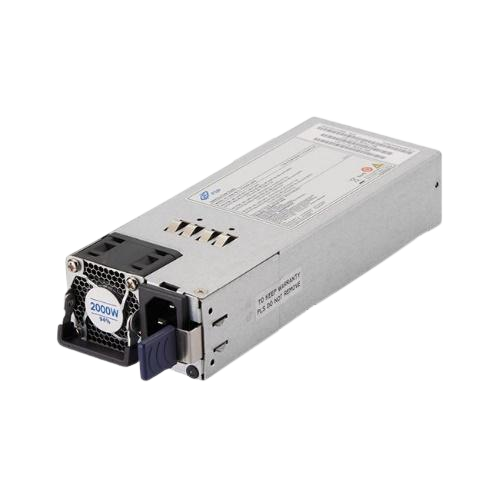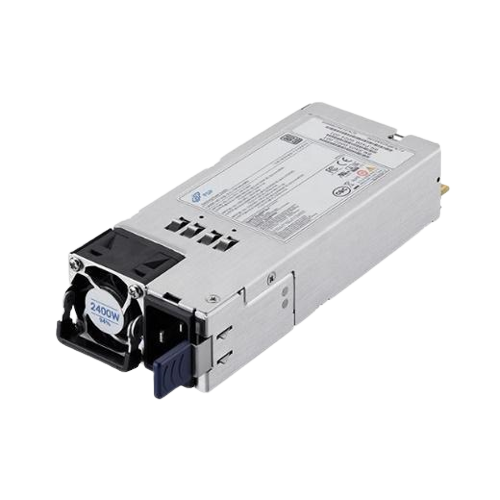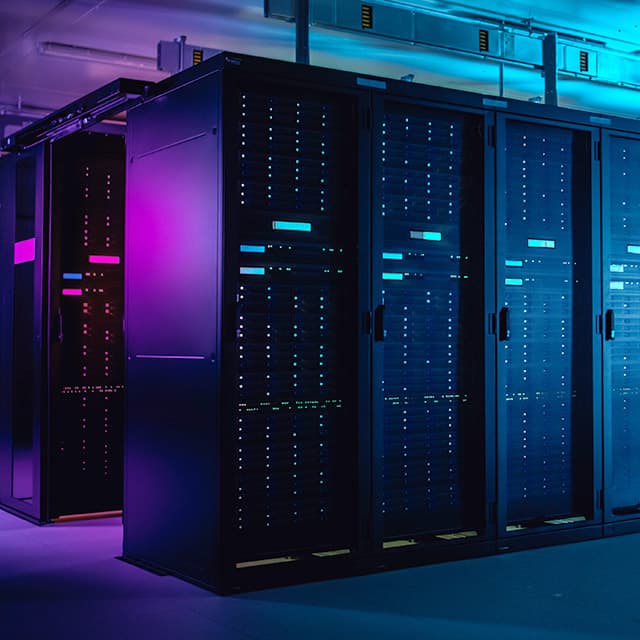Why Stable Power Is the Key to Data Center Operations — A Complete Guide to Power Supply Systems)
Overviews
- Why is electricity a crucial component of data centers?
- What is the power infrastructure of a data center?
- What are the causes of power outages in data centers?
- How to Design Reliable Power Supply Systems for Data Centers?
- FSP Data Center Power Supply – Key Features
- Power Supply Products Recommended by FSP Data Center
Author: FSP Group
In an era where digital technology rapidly penetrates every aspect of life—from streaming entertainment, navigation systems, and enterprise data processing to the daily use of smartphones, tablets, and computers—all these rely on powerful storage and computing support in the background.
According to the global data trend white paper "Data Age 2025" by IDC, a well-respected international research organization, as many as 60% of more than 400 companies in the Asia-Pacific region have begun to quantify the value of data, indicating that business organizations are paying increasing attention to data capitalization strategies, utilizing data to generate additional value. The processing of this huge amount of data requires the assistance of the data center, but the data center's operation requires a large and stable power supply. As a result, while developing data processing, a number of companies also consider the power supply solutions of the data center. Today we will present the importance of the data center’s power supply system and its way of operation.
Why is electricity a crucial component of data centers?
A data center processes the company or organization's data that must be recorded or calculated. It consists primarily of multiple servers, storage devices, and network communication devices. The data are stored, computed, and utilized. All information comes from mining; all communications must pass through the data center to be used.
The data center contains tens of thousands of devices and servers in order to process vast amounts of data. In order to maintain the long-term stability and normal operation of the data center, in addition to the construction of the basic plant environment and the maintenance and operation of the equipment, a substantial amount of stable power is necessary. To maintain continuous operation, it is essential to provide a stable power supply, efficient power usage, and a quick power backup. It is sufficient to support the operation of computer servers, fiber optic cables, and radiators in the data center with power output; consequently, data center power supply and integrated power supply solutions are gaining importance.
What is the power infrastructure of a data center?
The data center consists of a large number of servers, storage devices, network devices (switches, routers, and firewalls), as well as the racks and cables required to organize and connect the devices, but in addition to these facilities for processing data, some backup measures, with the support of the following infrastructure, are also needed for the data center's equipment being able to operate efficiently.
-
Power Distribution Systems
A data center requires a power distribution system because it requires a lot of power to support its operation, including data-processing servers, network equipment, storage equipment, cooling systems, and monitoring systems. The power distribution system will transmit power from the utility company or generator to the data center's various devices and perform power distribution and management. Typical examples include transformers, switchboards, circuit breakers, and cables.
The power distribution system typically includes backup batteries, uninterruptible power systems, and even solar panels to stabilize operations and ensure that the data center can respond quickly in the event of an unstable power supply or sudden problems, so as not to halt operations or cause data loss.
-
Fire Protection Equipment
In addition to preventing machines from overheating and catching fire, the data center must have high-quality fire protection equipment, such as fire-resistant building materials and elevators. To ensure the safety of the computer room, network monitoring and an integrated fire alarm system are installed. The fire extinguishing system in the data center must adhere to the principle of not harming electronic equipment, so sprinkler or powder-type traditional fire extinguishing equipment will not be used.
-
Ventilation, Heat Dissipation and Cooling Systems
To prevent servers and other data processing equipment from overheating during operation, data centers are outfitted with ventilation, heat dissipation and cooling equipment, such as fans, air conditioners, and other HVAC equipment. If the equipment in the data center becomes overheated, it must be equipped with a cooling system to allow it to cool more effectively and continue to operate.
-
Monitoring Systems
The data center must monitor the operational status of multiple infrastructures in real-time, and it must operate in a stable environment; therefore, it is equipped with monitoring systems such as temperature, humidity, smoke, gas detection, and UPS to ensure its operation.
-
Power Backup Systems
Since the servers and equipment in the data center must operate continuously, a power backup system, including UPS, generator sets, etc., is required to ensure that the data center can continue to operate in the event of unforeseen circumstances such as power outages.
What are the causes of power outages in data centers?
According to statistics from UL data centers, the five leading causes of data losses in data centers are as follows, with their respective proportions: Power outages (32%), IT issues (21%), environmental factors (19%), hacker attacks (9%), and a malfunctioning air conditioner that causes overheating (3%). The aforementioned information indicates that power outages require the most immediate attention, which can be classified as either internal or external.
An internal issue is a data center configuration problem, typically caused by an overloaded power grid and subsequent power system interruptions. Backup power must be activated in order to continue power generation and maintain the data center's operations. External factors include Taipower's blackouts, etc. When this occurs, an uninterruptible power supply (UPS) is required. FSP's UPS product series not only meet requirements for information and communications, netcom, cloud storage, and other protection requirements, but also provide diverse uninterruptible system products that accommodate different capacity requirements, such as M Plus & XMOD series, Mplus 30-300kVA, XMOD 300KW, XMOD 60KW, etc., with modularized design and corresponding accessories that satisfy diverse power requirements.
How to Design Reliable Power Supply Systems for Data Centers?
The overall configuration of the data center's power supply systems is crucial from the ground up. In addition to the single and dual power supplies in the cabinet, equipment such as smart power strips (for measuring electrical current and shutting down remote-controlled sockets), uninterruptible power systems (UPS), backup battery unit (BBU), and redundant power supply (RPS), redundant power systems, etc. are required in data centers when unanticipated events occur.
FSP Data Center Power Supply – Key Features
- Purpose-built for Data Centers
The CRPS and M-CRPS series are high-efficiency, hot-swappable redundant power supplies optimized for servers, storage devices, and data center systems. - High Power Density & Modular Scalability
Supports wattage ranges from 1,000W to over 3,000W, featuring modular design for easy expansion. - Industry-leading Efficiency & Certifications
Multiple models meet the 80 Plus Titanium efficiency standard and comply with CB62368-1 safety certification. - Flexible Input & Communication Interfaces
Supports AC 100–240V input and PMBus 1.2 communication interface, enabling real-time monitoring for servers and storage equipment. - Wide Application Coverage for Future Technologies
Beyond data centers, they are also ideal for edge computing (Edge AI), storage servers, and other high-demand environments–demonstrating the power value of next-generation computing infrastructure.
Power Supply Products Recommended by FSP Data Center
The preceding explanation demonstrates the significance of power systems in data centers. Today, the redundant power system is the most prevalent recommendation, and redundant power supply is a fundamental component of data centers. It is composed primarily of power modules with varied specifications. Chips are used to regulate the balancing of power loads. When one of the power modules fails and is faulty, the remaining power modules continue to provide power. This ensures the normal operation of the data center. Two redundant power supply products from FSP are recommended below:
FSP2000-20HM: This product is a CRPS standard 2000W redundant power supply module with 80PLUS platinum grade and up to 96% power conversion efficiency with PMbus. In addition, it can communicate directly with motherboards and is suitable for use in an environment of 5,000 meters above sea level and 0 to 55°C, making it an ideal choice for data centers and workstations.

Figure: FSP2000-20HM (Product detail)
- FSP 2400-20FM: Compared to the previous product, this model uses the same CRPS standard 2400W redundant power supply module with 80PLUS titanium grade and up to 94% power conversion efficiency with PMbus. In addition, it can communicate directly with motherboards and be used in the same work environment of 5,000 meters above sea level and 0 to 55°C per the requirements of a high-specification data center and workstation.

Figure: FSP2400-20FM (Product detail)
About FSP
FSP Group is one of the global leading power supply manufacturer. Since 1993, FSP Group has followed the management conception “service, profession, and innovation” to fulfill its responsibilities as a green energy resolution supplier.



